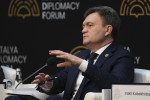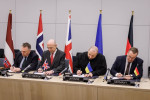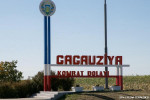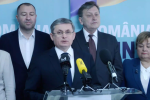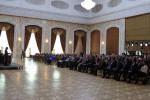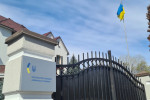Parliament passes National Security Strategy
The legislative body Friday adopted the National Security Strategy of Moldova. Deputy Foreign Minister Andrei Popov, who presented the draft strategy, said the document will enable the Government to adjust the national security police depending on the developments at internal and foreign levels, to identify the specific segments of the National Security Strategy that need to be reformed and to devise a realistic plan for implementing reforms, Info-Prim Neo reports.
According to the deputy minister, the National Security Strategy will serve as a basis for working out the National Military Strategy, the Defense and National Security Information and Communication Strategy and other strategic documents.
The draft strategy says that the risks threatening the national security include poverty, economic underdevelopment and energy dependence, the Transnistrian conflict, the crime and corruption, the demographic crisis and people’s health, the natural disasters and instability of the financial and banking sector. Moldova’s security is also affected by a series of risks that can degenerate into threats if they are ignored or dealt with in an inappropriate way. They include the political instability, the reduced capacities to secure the state border, food insecurity, etc.
Under the document, Moldova will take part in the global, regional and subregional efforts aimed at promoting international stability and security by cooperating with the UN, OSCE, NATO and other international organizations. The bilateral cooperation with Russia will be developed in accordance with the Basic Political Treaty.
Effort will be further made to resolve the Transnistrian conflict. Moldova will cooperate closely with all the players involved in the settlement process and will plead for increasing the role of the EU and the U.S. in the negotiations. Measures will be taken to achieve the objectives concerning the demilitarization of the Transnistrian region and the pullout of the Russian troops and munitions from Moldova’s territory in accordance with the decisions adopted within the OSCE.
The strategy also says that the armed forces of Moldova will develop the conventional capabilities in order to prevent, discourage and, if nee be, counteract military aggression.



